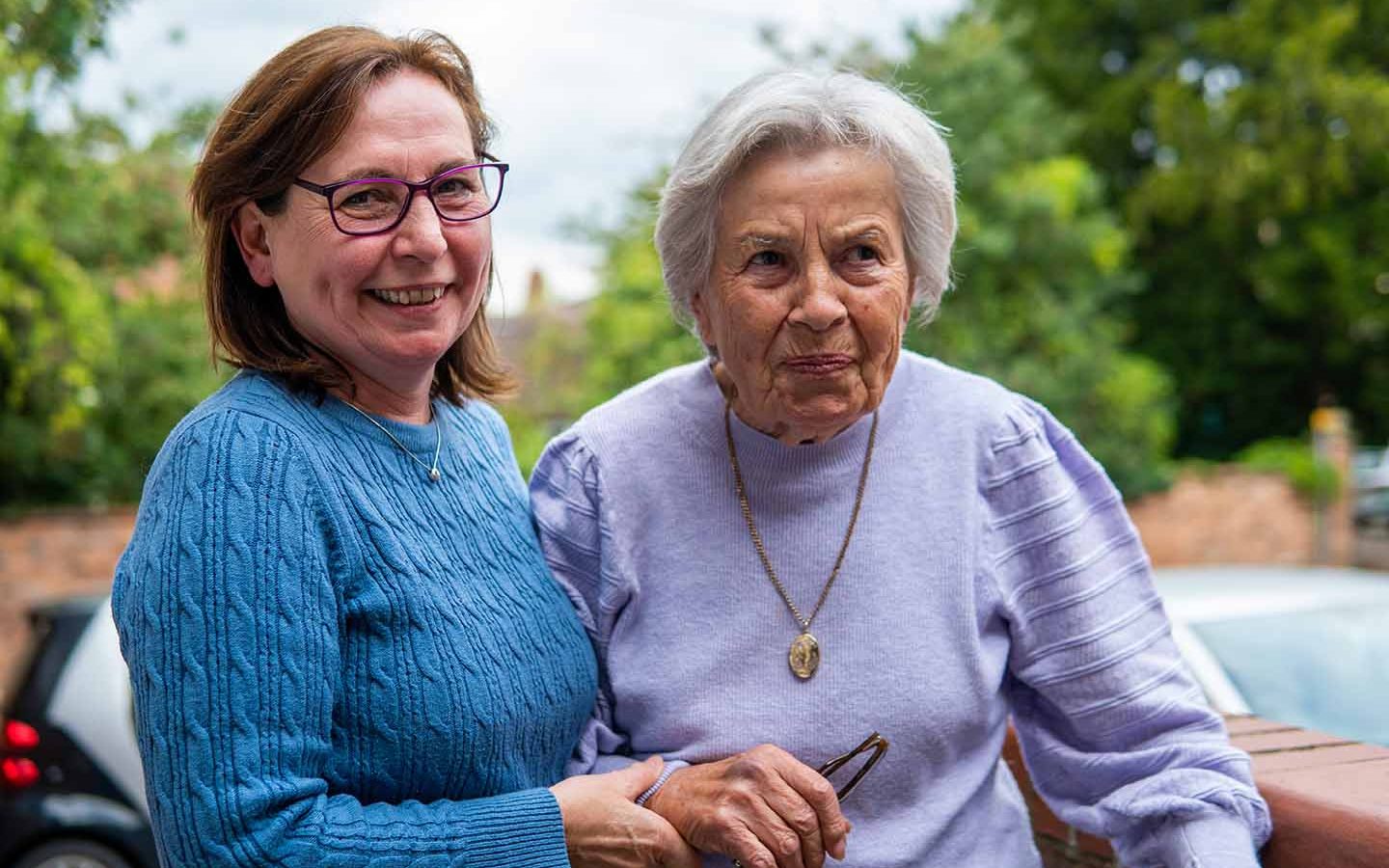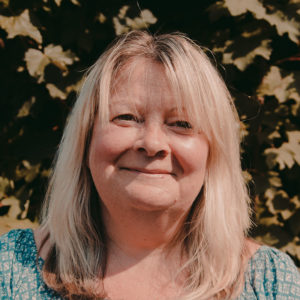Unpaid Carers: Will the next government acknowledge their value?
I would say the government should recognize the value of carers. Much more than they do now
Fred, 63, unpaid carer
Within the complex tapestry of the social care system in the United Kingdom, exists a hidden yet monumental force – unpaid carers. Unpaid carers (sometimes referred to as ‘family’ or ‘informal’ carers), provide support for a family member or friend due to long-term health problems, disability, or needs related to older age. Although caring can be ‘a profound and valuable experience’, there is an increasing recognition that, without adequate support, those who provide care can feel lonely or socially isolated, having a negative impact on their own health and wellbeing. While the additional financial costs incurred from providing unpaid care (e.g. travelling costs, increased food bill and resources needed for caring) can have an negative impact on an individual’s finances, somebody who has caring responsibilities is often less able to participate in paid employment, meaning they might need to reduce their hours, or give up work entirely as the intensity of caring increases.
Although a person who is providing a minimum of 35 hours of care per week might qualify for carers allowance, for many, this amount (currently £81.90per week) will be inadequate to replace earnings and pension contributions that have been lost. While Carers Trust have called the payment an ‘insult’, tens of thousands of unpaid carers are currently facing the threat of prosecution having received erroneous overpayments following an inadvertent breach of the benefit rules. The Joseph Rowntree Foundation report that unpaid carers are ‘more likely to live in poverty than those without caring responsibilities’, and Carers UK highlight the mounting financial pressure that unpaid carers have faced due to the increasing cost of living and rising energy costs.
ITV’s Tonight program recently highlighted the remarkable contribution that unpaid carers make to society, along with some of the key challenges (physical, emotional, and financial) that they face. Individuals featured in the show expressed feeling invisible and undervalued, a sentiment which has been previously documented by Carers Trust, reporting that over 90% of adult unpaid carers feel ignored by successive governments. This is particularly shocking considering that research findings suggest that the value of unpaid carers to our system of care in England and Wales is estimated to be worth £162 billion per year, and £5.8 billion per year in Northern Ireland, a total that is more than the value of the NHS (National Health Service). Without unpaid carers our social care system would collapse. Yet, despite their invaluable role, unpaid carers feel overlooked and marginalized, grappling with inadequate support, profound emotional exhaustion, and financial strain.
With a general election on the horizon in the United Kingdom, and one in five adults providing care across the UK, it becomes increasingly evident that political parties should acknowledge the true value of unpaid care and ensure that carer wellbeing (both subjective and financial) is at the forefront of any plans to ensure that our social care system is sustainable. By listening carefully to the voices of unpaid carers, a future government could develop targeted interventions and support mechanisms that promote resilience, alleviate burden, and safeguard their subjective and financial wellbeing.
Our research
In the Centre for Care, we want to understand how individuals experience caring, decisions that they make in relation to their caring responsibilities and how short and longer term costs of caregiving shape a person’s subjective and financial wellbeing over time. During July and August 2023, Louise Overton and I completed 50 in-depth interviews with unpaid carers to explore the financial consequences of providing care, and the ways that care and caring might be experienced unequally.
The stories that unpaid carers shared about their caring experiences were frequently filled with emotion and, at times, were challenging to listen to. As qualitative researchers, who seek to explore and understand peoples’ lived experiences, it always feels like a privilege when a person voluntarily tells their personal story, sharing their successes and struggles, their joys, and their concerns. Our conversations with unpaid carers were no different. Apart from feelings of pride in caring for a loved one, unpaid carers talked about the challenges in being able to provide the right kind of care, time spent away from family and friends, impacts on relationships, feelings of isolation, money worries and longer-term concerns about their financial futures.
Reflecting the views of carers across the United Kingdom, our conversations with unpaid carers highlighted their concerns about juggling work and care, their own health and wellbeing and the financial impact of caring. Although the individuals who we spoke to recognised that, as a collective, they form the backbone of the social care system, providing essential support to the lives of millions across the UK, most of them felt undervalued, afraid that politicians don’t appreciate the contribution they make.
I think the government are mainly businesspeople who see everything as transactional. No real emotion behind anything. And they probably take the view that anyone that does something for no money, they’re idiots … And of course, the argument will be that [they] can’t afford to pay
Michael, 59, caring for his mum and dad
I feel quite upset as well, for them not understanding what we actually do. Because the people who are in government, until they actually have to do it themselves, then they won’t realise how much it entails, how much is in it, how hard you have to work
Pam, 55, caring for her mum
Carers UK have argued that the government has neglected our social care system for too long, failing to provide the changes and financial support that it desperately needs. This lack of commitment and funding has negatively impacted the lives of hundreds and thousands of unpaid carers and those they care for.
There are a lot of older people now, and we’re living longer, and we’re surviving more diseases than we ever have done. So, there are more people to care for, and I think it’s very difficult to care for everybody. But, in fact, I don’t know what they’d do without us sort of carers, you know, the untold heroes.
Rosie, 61, caring for her mum
I don’t think it’s really recognized, the amount of time, the effect that it has on your life and what you may have to sacrifice to get on with your life, and to care for a person like that
Charlie, 47, caring for his wife
What next?
Any future government in the United Kingdom must listen to the voices of unpaid carers, recognize the invaluable contribution they make to society and prioritize their needs in policymaking and resource allocation. The welfare of unpaid carers should not merely be a topic used for political point scoring, with warm words but little action, but rather a long-term responsibility that is acknowledged and shared across all parties. By listening to voices of unpaid carers, policymakers can gain invaluable insights into the realities of caregiving, the challenges of juggling work and care, and can develop policies that address the needs of this valuable population.
In the upcoming months, we will share the results of our research, amplifying the voices and perspectives of unpaid carers and increasing our understanding of how caregiving is experienced across various demographics. Our work at the Centre for Care will shed a light on the decisions that individuals make in relation to caring, the ways that unpaid caring influences both subjective and financial wellbeing, and how policy interventions might meet the needs of unpaid carers more effectively.
About the author
Maxine is based at the University of Birmingham and is part of the research team studying Inequalities in Care.
Maxine has an interest in human development, behaviour and the decisions that people make across a life span. In particular she is interested in the key influences on decisions that people make in relation to their personal and professional lives. She is currently working on a project that takes a life course approach to explore the economic impact of unpaid/family caring.

